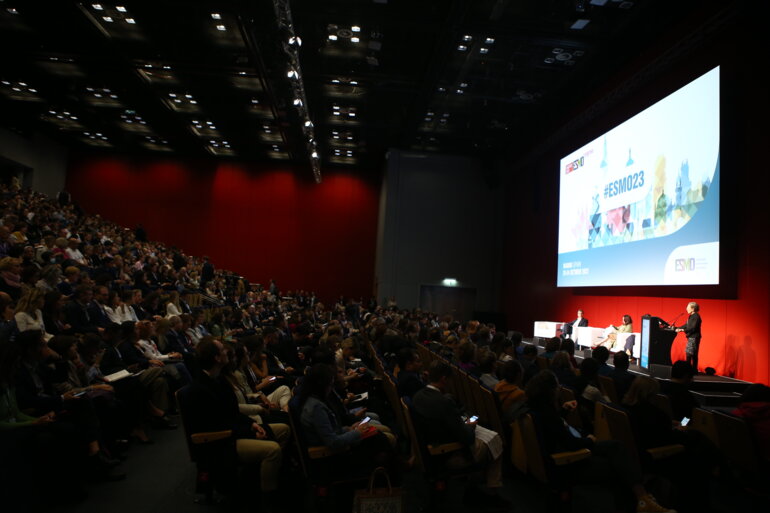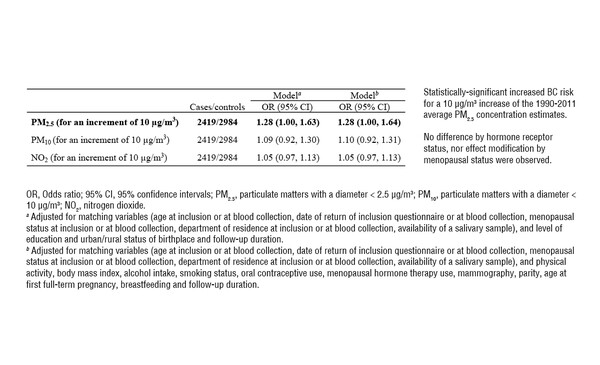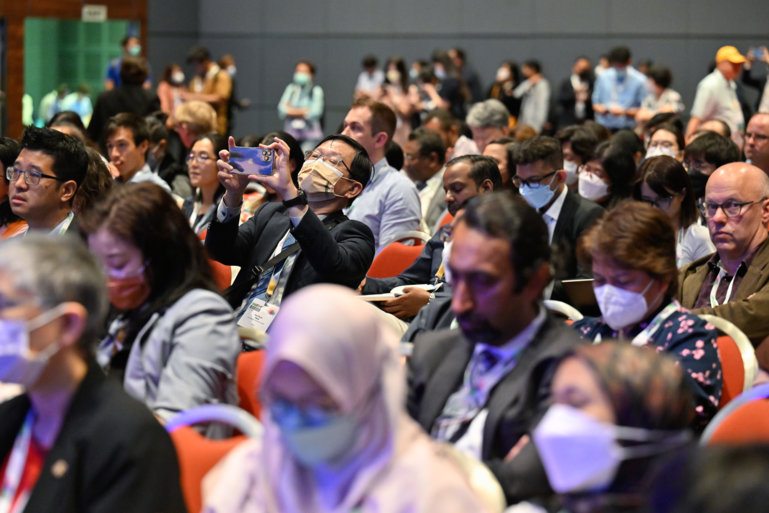Epidemiological data from France underline the urgent need for public policy and advocacy to improve air quality around the world
A significant linear increase in the risk of breast cancer related to a prolonged exposure to particulate matter (PM2.5 and PM10) and nitrogen dioxide (NO2) was revealed in a matched case-control study presented at the ESMO Congress 2023 (Madrid, 20–24 October), adding new evidence to the connection between solid tumours and human-made air pollution (Abstract 238MO).
The study involved 2,419 cases of breast cancer and 2,984 randomly selected, matched controls – individually matched by age, department of residence, date and menopausal status at blood collection – nested in the prospective E3N cohort (NCT03285230), the French element of the European Epic Study, which is co-ordinated by the International Agency for Research on Cancer. Annual mean PM2.5, PM10 and NO2 levels were estimated using a Land Use Regression model and were assigned to women based on geocoded residential and workplace addresses. Average pollutant concentrations were weighted by the proportion of time spent at home (80%) and at work (20%) by the participants in the period 1990–2011. A numerically higher risk of breast cancer was associated with PM2.5 (adjusted odds ratio [OR] 1.28; 95% confidence interval [CI] 1.00–1.63), PM10 (adjusted OR 1.09; 95% CI 0.92–1.30) and NO2 (adjusted OR 1.05; 95% CI 0.97–1.13) for the same incremental increase of 10 µg/m3.
The findings from this study support a growing body of evidence, including recently published data from a large US cohort (J Natl Cancer Inst. 2023; Sep 11), that air pollution, particularly small particulate matter, has some association with increased breast cancer risk. “Breast cancers, other than hereditary diseases, have multifactorial risk factors and it is the cumulative exposure over time that increases an individual’s risk,” explains Dr Shani Paluch-Shimon from Hadassah University Hospital, Israel. “We know that there is a biological rationale behind the link between air pollution and breast cancer risk, given that small particulate matter is genotoxic, can lead to endocrine destructive behaviours and can affect breast tissue density. So, what we are seeing with these latest data is part of a bigger picture of cancer risk and we need to understand how it fits together.”
As reported in the study, hormone receptor and menopausal status did not influence results. “When interpreting the study findings it is also important to note that the women involved in the French E3N cohort had a baseline age of 40–65 years, so the observations do not reflect the general population nor early or lifelong exposure to air pollution.”
Increasing evidence is proving that poor air quality has a significant impact on the risk of some solid tumours, such as lung cancer and breast cancer. As presented at the ESMO Congress 2022, a molecular mechanism behind air pollution-related lung cancer in non-smokers was identified, highlighting an urgent need to reduce air pollutant levels.
“The weight of the evidence collected so far calls for renewed vigour in the development of public policy to improve air quality. This is particularly timely given the effect on our environment of changes in the climate, such as the recent increase in forest fires in some regions. We also need to consider that while air pollution is a global problem, it is one that is likely to disproportionately impact many low- to middle-income countries, which are already at a disadvantage in terms of access to affordable healthcare,” concludes Paluch-Shimon.
Abstract discussed:
Fervers B, et al. Long-term residential and workplace exposure to air pollution and breast cancer risk: A case-control study nested in the French E3N cohort from 1990 to 2011. ESMO Congress 2023, Abstract 238MO
Mini Oral Session – Breast cancer, early stage, 23.10.2023, h. 10:15 – 11:45, Bilbao Auditorium – NCC







